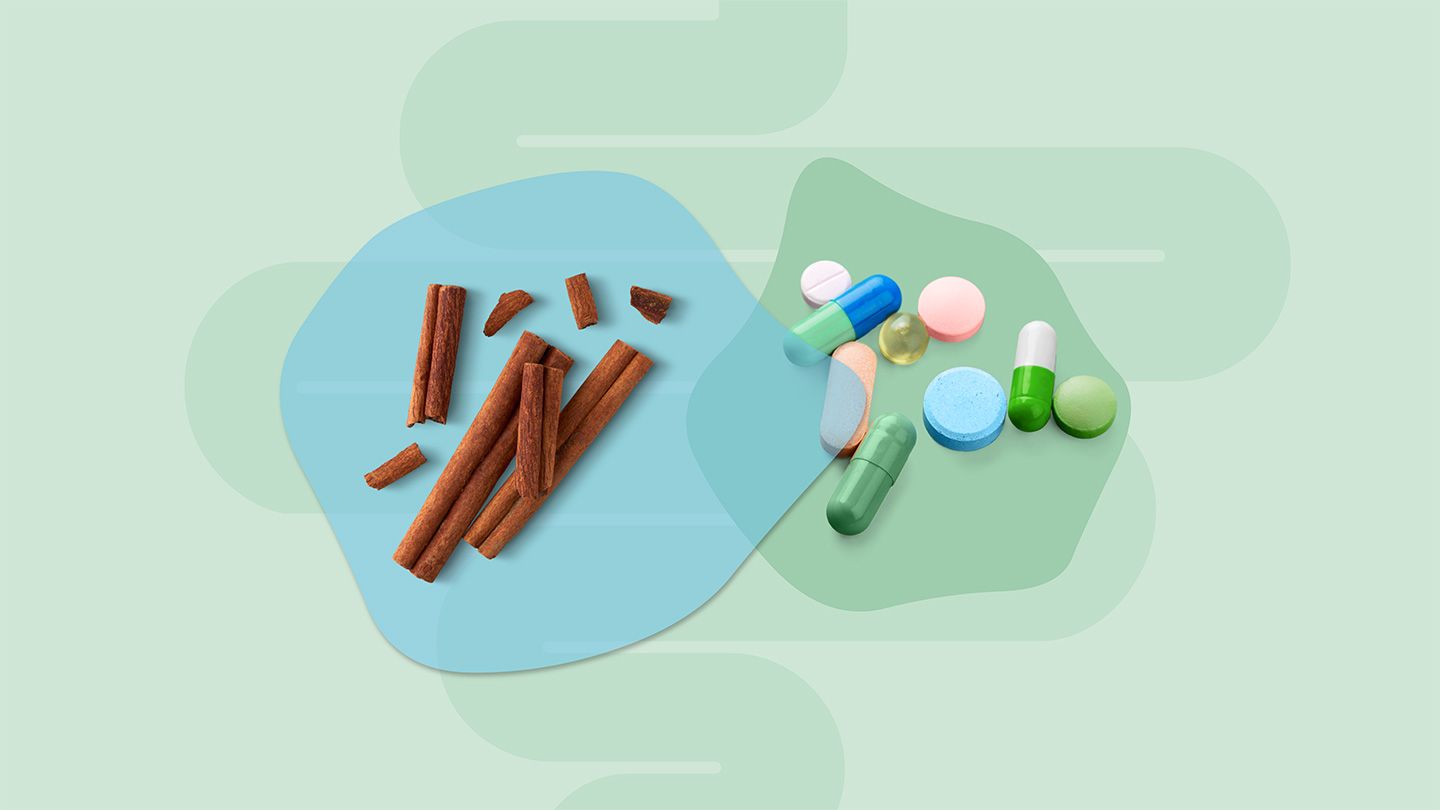Cinnamon has earned a reputation as a health booster. But the researchers behind a new study warn that high doses of the spice, specifically in the form of dietary supplements, may decrease the effectiveness of certain prescription drugs.
“Overconsumption of supplements could lead to a rapid clearance of the prescription medicine from the body, and that could result in making the medicine less effective,” said study author Shabana Khan, PhD, a principal scientist at the National Center for Natural Products Research at the University of Mississippi, in a statement. “Health concerns could arise if excessive amounts of supplements are consumed without the knowledge of a healthcare provider or prescriber of the medications.”
In the research, which was published in the June edition of Food Chemistry: Molecular Sciences, Dr. Khan and her collaborators found that cinnamaldehyde, a compound responsible for cinnamon’s distinctive taste and smell, activates receptors in the body that speed up how quickly medications are metabolized, potentially flushing them out before they have time to work.
Cassia cinnamon bark from southern China poses additional risk, Khan and her team say. In addition to containing cinnamaldehyde, this type of cinnamon has high levels of coumarin, a compound also present in fenugreek seeds that has anticoagulant properties, making it dangerous for people on blood thinners. Coumarin is also known to cause liver damage in large doses.
Which Drugs Can Cinnamon Supplements Interact With?
Cinnamon supplements may be of particular concern for people who take medications processed by the liver, like those for diabetes, blood pressure, and mood disorders, according to Wesley McWhorter, DrPH, spokesperson for the Academy of Nutrition and Dietetics.
Khan counsels patients to be extra cautious with cinnamon supplements if they have a chronic illness, such as hypertension, diabetes, cancer, arthritis, asthma, obesity, HIV, AIDS, or depression.
While this study confirms earlier research on cinnamon’s interactions with medications, Khan and her colleagues concluded that more research is needed, including clinical trials in humans, to fully understand the role that cinnamon plays in the body and what potential spice-drug interactions may occur.
Cinnamon Sprinkled on Your Latte Is Not a Concern
Dr. McWhorter stresses that the amount of cinnamon you sprinkle on a latte or add to a recipe doesn’t pose the same risk as supplements, which deliver a much higher dose of active compounds.
“Enjoy cinnamon in your diet, but be cautious about supplementing — and always talk to a registered dietitian or healthcare provider before adding it to your regimen,” says McWhorter, who was not involved in the study.
Flavoring foods and beverages with modest amounts of cinnamon may indeed have potential health benefits, according to Christine Ryan, RDN, a registered dietitian-nutritionist in Seattle. These include lowering blood glucose levels, lowering cholesterol, and fighting inflammation and infection.
“Using cinnamon as a spice in food is the safest way,” says Ryan, who was not involved in the research. “Cinnamon paired with a whole-food, plant-based diet is the best practice to use cinnamon without overdoing it. Ground cinnamon can be added to oatmeal, baked goods, applesauce, or coffee. Cinnamon sticks can be added to stews or sauces or simmered with beans and lentils.”




